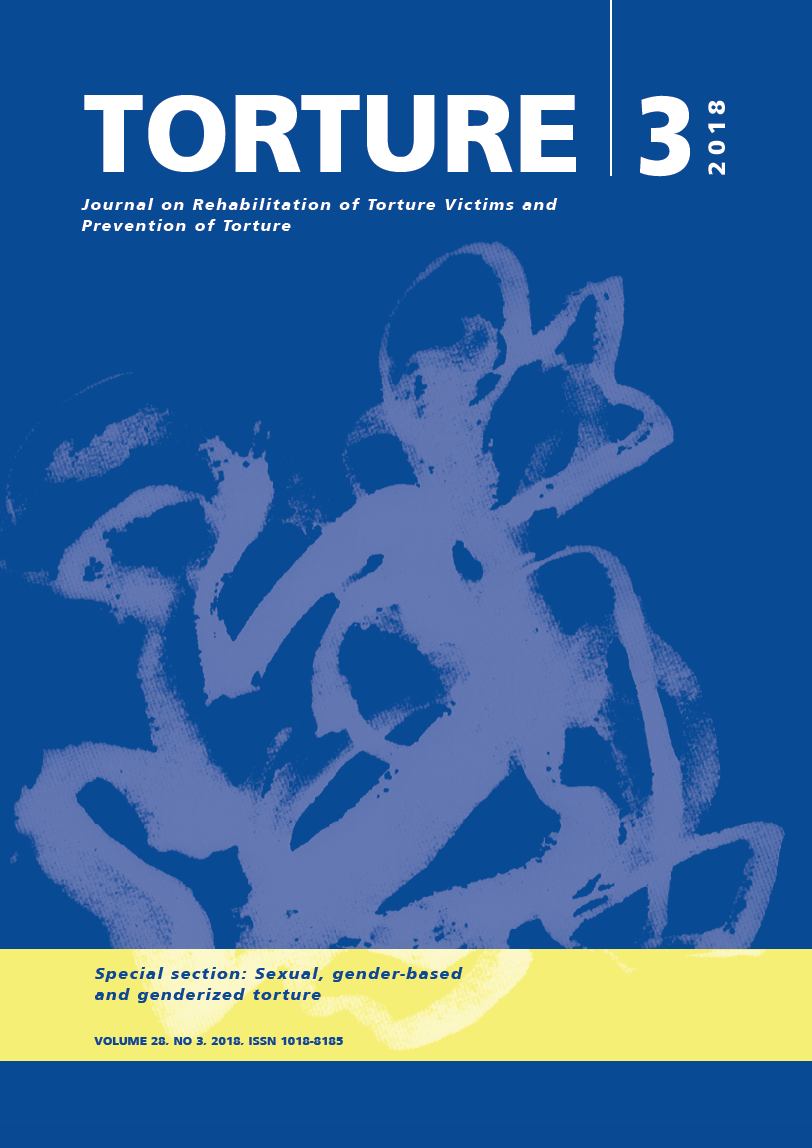The health impact of (sexual) torture amongst Afghan, Iranian and Kurdish refugees: A literature review
DOI:
https://doi.org/10.7146/torture.v28i3.111194Keywords:
Sexual torture, health, Muslims, refugeesAbstract
Background: Amongst Muslim majority countries, torture is reported most in Afghanistan and Iran. In addition, despite the significant impact of sexual violence on individuals and public health, the issue has been poorly researched amongst victims of torture. Objectives: The original intention of this paper was to review the health impact of sexual torture amongst Iranian and Afghan refugees in high-income countries; however, a comprehensive search of relevant databases did not produce any results. The aim of this review was then altered to examine those health-related studies that explored the impact of torture in this population. Special attention was given to the discussion of gender and sexual violence in those studies. Methodology: Web of Science, PILOTS, Medline, PsycINFO, Scopus, Popline and the online catalogue at DIGNITY were searched for health studies that examined the health impact or predictors of adverse health outcomes in Afghan, Iranian and Kurdish refugee survivors of torture. Outcome: Seven papers were identified and examined in this review. The results were limited by the diverse methodologies, by the use of psychiatric tools that had not been validated in this population, and by small sample sizes. Since there is a high prevalence of sexual torture in Iranian and Kurdish refugees, the issue merits greater attention in this population. Studies are most limited amongst the Afghan population. Moreover, there is a great need for further culture-andgender- specific health research in torture survivors from Muslim backgrounds.
Downloads
Published
How to Cite
Issue
Section
License
We accept that some authors (e.g. government employees in some countries) are unable to transfer copyright. The Creative Commons Licence Attribution-NonCommercial-NoDerivatives 4.0 International (CC BY-NC-ND 4.0) covers both the Torture Journal and the IRCT web site. The publisher will not put any limitation on the personal freedom of the author to use material contained in the paper in other works which may be published, provided that acknowledgement is made to the original place of publication.


